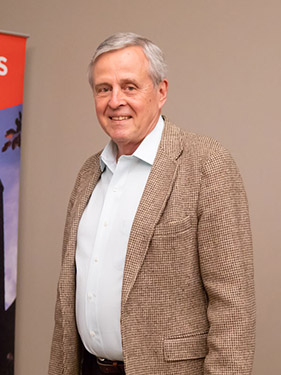With support from the American Educational Research Association (AERA), the Forum on the Future of Public Education, led by Dr. Jennifer Delaney at the University of Illinois at Urbana-Champaign, recently held a Volatility in State Spending for Higher Education research conference. Researchers from across the nation presented and participated in discussions on the contemporary realities of state spending for higher education. An ongoing theme identified throughout the conference involved questions regarding the definition of volatility and if it has become the “new normal” for state spending on higher education. Dr. William Zumeta, Professor at the University of Washington’s Evans School of Public Policy and Education, explored this topic in his keynote address discussing the realities associated with the vulnerability of higher education in difficult budget times. Dr. Zumeta, along with other featured speakers, noted the particular implications of the growing costs of higher education being shifted to students at a time when family wages have experienced stagnation. Dr. Zumeta pointed to the free college movement that relies heavily on community colleges as a way that some states are seeking to address growing costs. As states consider this, Dr. Zumeta highlighted the importance of understanding the historical underfunding of community colleges and the need to address institutional capacity for growing enrollment as opportunities are extended as part of this movement. One of the papers presented at the conference explored the specific funding structures associated with existing state Promise programs and how future economic recessions may influence their survival (Kramer, Marsicano, & Gentile, 2018).
Moving forward, Dr. Zumeta encouraged participants to recognize the need to build broader coalitions of support for higher education both inside and outside of government to handle the realities of living with state funding volatility. The state of Illinois provides a particularly relevant context for the conference topic, with the state’s public higher education institutions still reeling from a budget impasse that lasted over two years. These implications were specifically discussed throughout the conference by various speakers and panelists, including Dr. Al Bowman, Executive Director of the Illinois Board of Higher Education; State Senator Pat McGuire, Chair of the Higher Education Committee and Higher Education Working Group; Dr. Elaine Maimon, President of Governors State University; and Mr. Eric Zarnikow, Executive Director of the Illinois Student Assistance Commission. In relation to community college partnerships, Dr. Maimon described her institution’s commitment to prioritize support services for the Dual Degree Program, a partnership between Governors State University and 17 Chicagoland community colleges, during the budget impasse. In light of Dr. Zumeta’s comments on the importance of building coalitions of support, the creation of a bipartisan Higher Education Working Group in Illinois was cited as an example of a positive step forward in building collaborative efforts to advance state support of public higher education.
Reference
- Kramer, J. W., Marsicano, C. R., & Gentile, S. P. (2018). Sustaining free college programs in a volatile funding environment. Paper presented at the Volatility in State Spending for Higher Education conference, Champaign, IL.
Photo by L. Brian Stauffer, UI News Bureau, shows Dr. William Zumeta, Professor at the University of Washington’s Evans School of Public Policy and Education, as he presents a keynote address at the Volatility in State Spending for Higher Education conference held at the University of Illinois at Urbana-Champaign.
